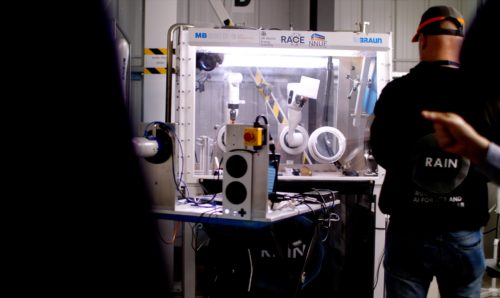Adoption of novel technologies for nuclear decommissioning
Projects 10th January 2018
Key contact: Ian Tellam, The University of Manchester
Led by The University of Manchester, this project sets out to explore the social and cultural processes of technological innovation in the context of the decommissioning of the Sellafield nuclear site in West Cumbria. The study will focus on how technology development and implementation happens currently in the highly regulated nuclear industry, and how a deeper understanding of these processes might help to avoid problems encountered in the past, and build on and strengthen processes that work for the future.
Sellafield Ltd’s analysis of their clean-up mission has highlighted many opportunities for the deployment of new technologies with the potential to dramatically reduce the costs and timescales of decommissioning. However, many of the technologies identified as necessary to the decommissioning process are not yet fully developed, or have been developed for different working contexts. The successful translation of novel technology from concept through to routine adoption is built around demonstrating efficacy, and establishing and maintaining confidence amongst a broad cross-section of invested stake-holders.
To further understanding of how this might best be achieved, three key stake-holder groups and their interactions will provide the focus for this empirical study:
- Decision makers – experts and management
- The wider ‘community’ – unions, supply chains, and sub-contractors
- Developers of new technologies
Contact: ian.tellam@postgrad.manchester.ac.uk
Research team: Ian Tellam, Penny Harvey, Barry Lennox, Anthony Banford (National Nuclear Laboratory)




